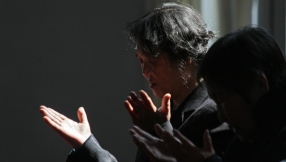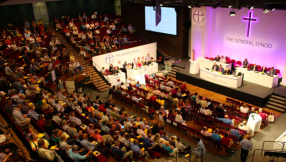Extremists in India pressure Christians to adopt Hindu culture
This incident reveals that not only are Hindu extremists trying to assert the dominance of their religion, but that Christians in India are also facing pressure to adopt Hindu culture, which Hindu nationalist groups claim is the Indian culture, International Christian Concern claimed.
India's most influential Hindu nationalist organisation, the Rashtriya Swayamsevak Sangh (RSS), alleges that the Hindu religious tradition is inseparable from the Indian culture, thereby equating being Indian with complete conformity to the Hindu way of life.
This argument is further extended to assert that every religious conversion is an "act of violence" as it "destroys" the "Indian culture".
In response to the attempt of Hindu nationalists to portray Hinduism as the unique cradle of Indian civilisation, India's Nobel Prize winning economist Amartya Sen highlights in his book 'The Argumentative Indian' the long tradition of heterodoxy in India.
"In resisting the attempts by the Hindutva activists to capture ancient India as their home ground it is not enough to point out that India has many other sources of culture as well," he writes. "It is necessary also to see how much heterodoxy there has been in Indian thoughts and beliefs from very early days."
Sen, also a social scientist, points out that not only did Buddhist, Jains, agnostics and atheists compete with each other and with adherents of "what we now call Hinduism (a much later term)" in the India of the first millennium BCE, but also the dominant religion in India was Buddhism for nearly a thousand years.
"Ancient India cannot be fitted into the narrow box where the Hindutva activists want to incarcerate it," he concludes.
Sen goes on to say that while most of Catholic Europe was given over to the Inquisition, and, in Rome, Giordano Bruno was being burnt at the stake for heresy, in India, the 16th-century Mogul emperor Akbar was declaring, "No man should be interfered with on account of religion, and anyone is to be allowed to go over to a religion that pleases him."
ICC Policy Analyst for India, Jeremy Sewall, said, "India's Hindu extremists need to get their history straight. Though they have been using it to justify attacks on Christians, their very own history shows that even their non-Christian rulers and past kingdoms embraced a very Christian idea: religious belief is not something you can force on someone else."
For more on Christian persecution go to www.persecution.org













